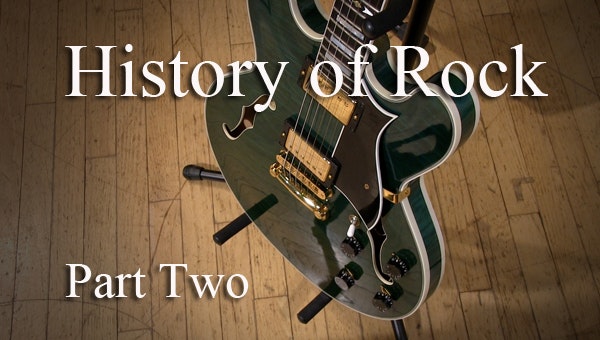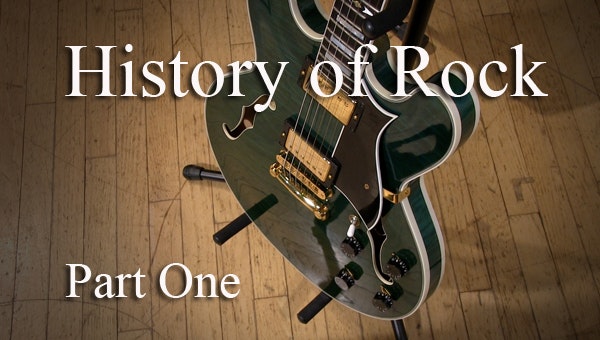Music Critic
Becoming a Music Critic: A Comprehensive Career Guide
A Music Critic evaluates musical works, performances, and trends, offering informed analysis and commentary. This role involves more than just stating opinions; it requires a deep understanding of music history, theory, and cultural context to provide insightful perspectives that can educate and guide audiences. Critics often publish their work in newspapers, magazines, websites, blogs, or contribute to podcasts and video content.
Engaging with music on a deep analytical level can be profoundly rewarding. Imagine dissecting the layers of a complex jazz improvisation, contextualizing a new pop album within current cultural movements, or exploring the historical significance of a classical symphony premiere. For those passionate about music and skilled in communication, a career as a music critic offers a unique platform to share insights and shape conversations around the art form.
Introduction to Music Criticism
What is Music Criticism?
Music criticism is the practice of analyzing, interpreting, evaluating, and discussing music. Its purpose extends beyond simple judgment ("good" or "bad") to encompass a deeper exploration of a musical piece's structure, context, performance quality, and cultural significance. A critic acts as a mediator between the art and the audience, aiming to enhance understanding and appreciation.
Critics employ analytical tools drawn from music theory, history, and cultural studies to articulate their assessments. They might examine melody, harmony, rhythm, instrumentation, lyrics, production techniques, and the artist's intent. The goal is often to place a work within a broader artistic landscape, comparing it to past works, contemporary trends, or genre conventions.
Ultimately, music criticism seeks to foster a more informed and engaged listening public. By providing context, interpretation, and reasoned evaluation, critics encourage readers or listeners to think more deeply about the music they encounter and its place in the world.
A Brief History of Listening Critically
The roots of formal music criticism trace back to the 18th century, coinciding with the rise of public concerts and music publishing. Early critics often focused on opera and orchestral music, writing for journals and newspapers aimed at an educated bourgeoisie eager to understand and discuss the burgeoning art form.
The 19th century saw critics like Hector Berlioz and Robert Schumann, themselves composers, elevate the practice with more sophisticated musical analysis and passionate advocacy. The advent of recording technology in the 20th century broadened the scope dramatically, bringing popular genres like jazz, blues, and rock 'n' roll into critical discourse. Publications dedicated to specific genres emerged, catering to increasingly diverse audiences.
The digital age has democratized music criticism further. Blogs, social media, podcasts, and platforms like YouTube allow anyone with an internet connection to share their thoughts. While this expands the range of voices, it also shifts authority away from traditional media gatekeepers, creating both opportunities and challenges for establishing critical credibility in a crowded online space.
These courses explore various periods and genres, providing essential historical context.
Criticism vs. Journalism vs. Reviews
While often overlapping, music criticism, music journalism, and casual reviewing serve distinct functions. Music criticism, at its core, emphasizes in-depth analysis, interpretation, and evaluation based on specific criteria, often incorporating historical and theoretical context.
Music journalism typically focuses more on reporting news related to the music industry – artist interviews, album announcements, tour dates, industry trends, and event coverage. While journalists may offer opinions, their primary goal is often informational rather than deeply analytical or evaluative in the same way as a critic.
Casual reviewing, common on fan blogs, social media, or e-commerce sites, usually expresses personal preference and immediate reactions. It lacks the rigorous analysis, contextualization, and established framework expected of professional criticism. While valuable for gauging popular sentiment, it doesn't carry the same weight as informed critical assessment.
Historical Context of Music Criticism
Pioneering Voices: Early Influences
Early figures significantly shaped the trajectory of music criticism. Composers like Hector Berlioz in France and Robert Schumann in Germany, writing in the 19th century, used their platforms not only to review performances and new works but also to champion specific composers (like Chopin and Brahms, in Schumann's case) and articulate aesthetic ideals. Their writings blended technical analysis with passionate, often polemical, prose.
These composer-critics established a precedent for criticism as an intellectual and artistic pursuit. They demonstrated that writing about music could be as insightful and influential as creating it. Their work helped define the role of the critic as not just a reviewer, but an arbiter of taste and a shaper of musical discourse.
Understanding these historical foundations provides context for contemporary critical practices. It highlights the long-standing debates about objectivity versus subjectivity, the critic's relationship with artists, and the influence criticism can wield in shaping musical canons and audience perception.
These courses delve into the music of pivotal composers from eras where criticism began to flourish.
Technology's Tune: Radio, Recordings, and Streaming
Technological advancements have profoundly reshaped music criticism. The invention of sound recording allowed for repeated listening and detailed analysis previously impossible. Radio broadcasts brought music, and commentary about it, to mass audiences, diversifying tastes and critical subjects beyond the concert hall.
The rise of LPs, cassettes, CDs, and eventually digital downloads and streaming platforms further democratized access to music. Critics could now review albums as cohesive artistic statements, not just live performances. This shift also meant critics increasingly engaged with recorded sound quality, production techniques, and the nuances of studio artistry alongside compositional and performance aspects.
Streaming services and algorithmic recommendations present new challenges and opportunities. While they offer unparalleled access, they can also homogenize listening habits and potentially diminish the influence of individual critical voices in favor of data-driven curation. Critics must now navigate this landscape, finding ways to offer unique perspectives amidst the digital noise.
The Shift in Authority: From Print to Pixels
Historically, music critics held significant sway through established print publications – major newspapers and influential music magazines. Getting a review published in these venues conferred authority and reached a wide, established readership. Editorial oversight ensured a certain standard of quality and rigor.
The internet dismantled these traditional structures. Blogs, online forums, and social media platforms enabled immediate, widespread dissemination of opinions, bypassing editorial gatekeepers. This led to a proliferation of voices, ranging from highly knowledgeable specialists to casual fans, all competing for attention.
While this democratization is positive in many ways, it has diffused critical authority. Readers must now actively assess the credibility and expertise of online critics. Established publications have adapted by building strong online presences, but independent critics operating on platforms like Substack or Patreon also cultivate dedicated followings, relying on personal brand and perceived expertise rather than institutional backing.
Defining the Role of a Music Critic
Core Duties: Beyond Just Listening
The work of a music critic involves much more than simply listening to music and sharing an opinion. Core responsibilities include rigorous analysis of musical elements like melody, harmony, rhythm, form, and instrumentation. Critics must understand how these components work together to create an effect.
Contextualization is crucial. This means placing a piece of music or performance within its relevant historical, cultural, and social background. Understanding the artist's previous work, genre conventions, and contemporary trends allows for a richer, more informed evaluation.
Educating the audience is another key function. Critics aim to deepen the audience's understanding and appreciation by explaining complex musical ideas, highlighting subtle details, and offering new ways to interpret the music. Effective communication, translating sophisticated concepts into accessible language, is paramount.
Finding Your Niche: Types of Critics
Music critics often specialize to develop deep expertise. Some focus on specific genres, such as classical, jazz, hip-hop, electronic, or various forms of rock and pop music. Genre specialists possess detailed knowledge of the history, key figures, and stylistic conventions of their chosen area.
Others might adopt a broader approach, acting as cultural commentators who use music as a lens to explore wider societal issues, trends, and identities. These critics might examine music's role in politics, social movements, technology, or celebrity culture, connecting musical analysis to broader cultural conversations.
There are also critics who specialize in specific formats, like live performance reviews versus album reviews, or those who focus on particular aspects like music production techniques or lyric analysis. Finding a niche allows critics to cultivate a unique voice and build a dedicated audience interested in their specific area of expertise.
Exploring different genres is key to finding a potential specialization.
Maintaining Integrity: Ethical Considerations
Ethical conduct is fundamental to credible music criticism. Critics must strive for objectivity and fairness, basing their evaluations on informed analysis rather than personal bias or external pressures. Transparency about potential conflicts of interest is essential.
This includes navigating relationships with artists, labels, publicists, and venues. Accepting excessive freebies, gifts, or paid travel ("junkets") can compromise independence. Critics must maintain a professional distance to ensure their judgment remains impartial.
Honesty in evaluation, even when delivering negative criticism, is important, but it should be constructive and well-supported by evidence from the music itself. Personal attacks or unsubstantiated claims undermine the critic's credibility and the purpose of criticism.
Navigating Relationships: Artists, Labels, and Editors
A music critic operates within a complex ecosystem of relationships. Maintaining editorial independence is paramount. Critics must resist pressure from artists, record labels, or promoters who may seek favorable coverage. Their primary allegiance should be to their readers and the pursuit of honest assessment.
Building professional relationships based on mutual respect is possible, but requires clear boundaries. Access to artists for interviews or advance copies of albums often depends on these relationships, yet critics must not let this access unduly influence their reviews.
The relationship with editors is also crucial. Editors provide guidance, ensure adherence to publication standards, and can act as a buffer against external pressures. However, critics must also be prepared to defend their judgments and resist editorial changes that compromise their critical integrity.
Essential Skills for Music Critics
Understanding the Language: Musical Literacy
A fundamental requirement for a music critic is musical literacy. This doesn't necessarily mean being a virtuoso performer, but it does involve a solid understanding of music theory – concepts like harmony, melody, rhythm, form, and texture. Familiarity with basic music notation can also be highly beneficial, particularly for classical or jazz criticism.
This literacy needs to extend across various genres. A critic reviewing both hip-hop and opera needs different analytical toolkits and background knowledge for each. Understanding the specific conventions, historical development, and key terminology of the genres you cover is essential for credible analysis.
Developing this literacy involves dedicated study, active listening, and continuous learning. Whether through formal education or self-directed study using resources like online courses, building a strong theoretical and historical foundation is key.
These courses provide foundational knowledge in music theory and musicianship.
For those starting from scratch or looking to solidify fundamentals, these resources are excellent.
Crafting Compelling Critique: Writing Techniques
Beyond musical knowledge, strong writing skills are non-negotiable. Critics must be able to articulate complex ideas clearly, engagingly, and persuasively. This involves mastering structure, developing a distinct voice, and using precise language to describe sound and its effects.
Effective critical writing balances description, analysis, and evaluation. It's not enough to simply say you like or dislike something; you must explain *why*, supporting your claims with specific examples from the music. Using vivid metaphors and analogies can help convey musical experiences, but clarity and analytical rigor should remain central.
Developing a unique style takes time and practice. Reading widely – both music criticism and other forms of analytical writing – helps. Experimenting with different approaches, seeking feedback, and constantly refining your prose are essential steps in honing your craft.
Seeing the Bigger Picture: Cultural Analysis
Music rarely exists in a vacuum. Effective criticism often involves placing music within its broader cultural context. This requires skills in cultural analysis – understanding how music reflects, shapes, and interacts with social trends, political movements, identity formations, and technological changes.
A critic might analyze how an artist's lyrics engage with current events, how a genre's evolution mirrors societal shifts, or how technology influences musical aesthetics and consumption patterns. This contextual understanding adds depth and relevance to the critique, moving beyond purely formal analysis.
Developing these skills involves engaging with fields like sociology, cultural studies, history, and media studies. Staying informed about current events and cultural discourse is also vital for making relevant connections between music and the world around it.
Adapting to the Digital Stage: Multimedia Formats
While traditional written reviews remain important, the digital landscape demands adaptability. Many successful critics now engage with multimedia formats, reaching audiences through podcasts, video essays, and social media platforms.
Creating compelling audio or video content requires different skill sets than writing. This might include basic audio/video editing, effective spoken delivery, visual storytelling techniques, and understanding platform-specific best practices (e.g., optimizing for YouTube algorithms or creating engaging TikTok clips).
Critics need to consider how to translate their analytical insights into these different mediums. A podcast might allow for more conversational exploration and inclusion of audio clips, while a video essay can use visuals to illustrate musical concepts or historical context. Embracing these formats can significantly expand a critic's reach and impact.
Formal Education Pathways
Laying the Foundation: Relevant Degrees
While a specific "music criticism" degree is rare, several undergraduate fields provide strong foundations. A degree in Musicology or Music History offers deep knowledge of musical styles, periods, and analytical techniques, particularly valuable for classical or historical genres.
Journalism programs develop essential writing, research, interviewing, and ethical skills applicable to criticism in any genre. They emphasize clarity, conciseness, and meeting deadlines – crucial in media environments.
Cultural Studies, Media Studies, or Communications degrees equip students with frameworks for analyzing music within broader social and cultural contexts, useful for critics interested in exploring music's societal impact. English or Comparative Literature programs hone critical thinking and analytical writing skills, easily transferable to music.
Often, a combination is effective, such as majoring in music and minoring in journalism, or vice versa. The key is acquiring both strong musical understanding and excellent communication skills.
Exploring Humanities or Arts & Culture course categories on OpenCourser can reveal relevant programs.
Deepening Expertise: Graduate Studies
For those seeking advanced academic grounding or careers in scholarly criticism, graduate programs can be beneficial. Master's or PhD programs in Musicology, Ethnomusicology, or Music Theory offer highly specialized training in research methodologies and deep dives into specific musical areas.
Some universities may offer specific tracks or seminars related to criticism within broader music or cultural studies programs. These advanced degrees are often prerequisites for university teaching positions, which sometimes incorporate critical writing and publication.
However, a graduate degree is not typically a requirement for most working music critics, especially in popular music journalism. Practical experience, a strong portfolio, and demonstrable expertise often carry more weight than advanced academic credentials in the media industry.
The Theory Behind the Sound: Music Theory and History
Regardless of the specific degree path, a solid grounding in music theory and music history is invaluable for a critic. Music theory provides the vocabulary and analytical tools to dissect how music is constructed – understanding harmony, melody, rhythm, and form allows for specific, evidence-based critiques.
Music history provides context. Knowing the evolution of genres, the key innovators, and the social conditions surrounding musical developments enables critics to place contemporary works within a larger narrative. This prevents evaluations from being purely subjective or ahistorical.
Even critics focusing on popular music benefit immensely from this knowledge. Understanding the historical roots of a genre or recognizing theoretical concepts (even if not using academic jargon) adds depth and authority to reviews. Many online courses offer accessible ways to build this foundational knowledge.
These courses cover essential music theory concepts applicable across genres.
Further theoretical explorations can be found in these texts.
Balancing Books and Beats: Academic vs. Practical Skills
Formal education provides valuable theoretical frameworks and historical knowledge. However, a successful career in music criticism also requires practical skills often developed outside the traditional classroom.
These include pitching articles to editors, adapting writing for different publications and audiences, meeting tight deadlines, conducting interviews, building industry contacts, and potentially managing freelance finances and self-promotion. Technical skills related to content management systems, basic audio/video editing, or social media management may also be necessary.
The most effective preparation often involves bridging academic learning with real-world experience. Internships, writing for student publications, starting a personal blog, or contributing to online platforms can help develop these practical skills alongside formal studies. Balancing theoretical depth with practical application is key.
Online Learning and Self-Education
Charting Your Own Course: Independent Study
The abundance of online resources makes self-directed learning a viable path for aspiring music critics. You can build deep genre expertise by immersing yourself in music, reading extensively about artists and history, and analyzing recordings independently. Online archives, streaming services, and digital libraries provide access to vast amounts of music and information.
Online courses, like those found on OpenCourser, offer structured learning in music theory, history, appreciation, and even specific genres, often taught by university professors or industry experts. These can supplement or even substitute for formal degree programs, allowing you to tailor your education to your specific interests and needs.
The key to successful independent study is discipline and direction. Set clear learning goals, seek out reputable resources, and actively engage with the material through critical listening and analytical writing practice. OpenCourser's Learner's Guide offers tips on structuring self-learning effectively.
These courses offer broad surveys or introductions suitable for independent learning.
Showcasing Your Voice: Building a Portfolio
Whether formally educated or self-taught, a strong portfolio of writing samples is essential for landing criticism gigs. You don't need formal credentials to start building one. Begin by writing reviews and analyses for your own blog or website.
Contribute to online music forums, community sites, or smaller publications that accept submissions, even if unpaid initially. This provides experience, feedback, and published clips. Focus on producing high-quality, well-researched, and insightful pieces that showcase your analytical skills and unique voice.
Tailor your portfolio to the types of publications you want to write for. If aiming for a specific genre magazine, ensure your samples reflect expertise in that area. Consistency and quality are key; a portfolio demonstrates not just your ability but also your commitment and passion.
The New Critical Landscape: Analyzing Online Models
The digital era has fostered new models for music criticism beyond traditional publications. Platforms like Substack allow critics to build direct relationships with readers through newsletters, often funded by subscriptions. Patreon enables creators to receive ongoing financial support from fans for their work, including reviews, podcasts, or video essays.
Aspiring critics should critically analyze these models. Understand their potential for editorial independence and direct audience engagement, but also their challenges regarding audience building, monetization, and maintaining consistency. Observe how successful independent critics utilize these platforms.
This analysis can inform your own strategy. Would a niche newsletter suit your expertise? Could a Patreon support in-depth projects? Understanding the possibilities and limitations of these digital-first models is crucial for navigating the contemporary media landscape.
Publishing Your Thoughts: Self-Publishing Ethics
Self-publishing through a personal blog, newsletter, or social media offers complete editorial freedom but also carries responsibilities. Without an editor's oversight, the onus is entirely on the critic to maintain high standards of accuracy, fairness, and ethical conduct.
Fact-checking becomes even more critical. Ensure all historical details, technical descriptions, and biographical information are correct. Clearly distinguish between factual reporting and subjective evaluation. Maintain the same ethical standards regarding conflicts of interest and respectful discourse as you would for a traditional publication.
While self-publishing provides a valuable platform, recognize its limitations in terms of perceived authority compared to established, edited publications. Building credibility takes time and consistent demonstration of expertise and integrity. It requires rigorous self-editing and a commitment to quality equivalent to professional standards.
Music Critic Career Progression
Starting the Journey: Entry-Level Opportunities
Breaking into music criticism often begins with freelance contributions. Pitching reviews, interviews, or feature ideas to online publications, local newspapers, or smaller music magazines is a common starting point. Building relationships with editors through consistent, high-quality work is key.
Internships at media outlets or record labels can provide valuable experience and industry contacts. Some larger publications may occasionally have entry-level staff positions like editorial assistant or junior writer, though these are highly competitive.
Starting a personal blog or contributing consistently to a reputable online platform can also serve as an entry point, demonstrating your skills and building a portfolio. Early opportunities may be unpaid or low-paid, requiring persistence and a focus on gaining experience and exposure.
Developing practical career skills is important.
Climbing the Ladder: Mid-Career Paths
With experience and a strong portfolio, critics may progress to more regular freelance work with larger publications or secure staff writer positions. Specialization in a particular genre or area can lead to becoming a go-to expert for certain outlets.
Mid-career critics might transition into editorial roles, such as music editor or arts editor, overseeing other writers, shaping coverage, and managing budgets. This path requires strong organizational, leadership, and editing skills in addition to critical acumen.
Developing a distinct voice and a strong personal brand can lead to opportunities like writing books, hosting podcasts, curating playlists or festival stages, or engaging in public speaking and university lectures. Building a reputation for insightful analysis opens doors beyond traditional reviewing.
Beyond Reviews: Alternative Roles
The skills developed as a music critic – deep musical knowledge, analytical thinking, strong writing, contextual understanding – are transferable to various related fields. Some critics move into A&R (Artists and Repertoire) roles at record labels, using their ears and judgment to discover and develop new talent.
Others might work in music supervision for film or television, selecting music for soundtracks. Writing artist biographies, liner notes for albums, or marketing copy for labels and venues are other possibilities. Festival programming, museum curation focusing on music, or consulting for arts organizations also draw on critical expertise.
These alternative paths can offer more stable employment or different creative outlets while still leveraging a passion for and deep understanding of music. Experience as a critic provides a unique perspective valuable in many corners of the music industry.
The Financial Realities: Income Expectations
The financial landscape for music critics can be challenging. Full-time, salaried positions are relatively scarce and highly competitive, often concentrated at major national publications or established digital media companies. Many, perhaps most, music critics work on a freelance basis.
Freelance rates vary widely depending on the publication, the writer's experience, the length and complexity of the piece, and negotiation skills. Income can be inconsistent, requiring critics to juggle multiple assignments and manage their finances carefully. Data from the U.S. Bureau of Labor Statistics on writers and authors indicates a wide range of earnings, and freelance income often requires supplemental work.
Building a sustainable career often involves diversifying income streams – perhaps combining freelance writing with editing, teaching, podcasting, or other related work. It requires entrepreneurial skills alongside critical talent. Be realistic about the financial challenges and prepared for the hustle often required, especially early in your career.
Industry Evolution and Market Pressures
The Changing Media Landscape
The music criticism field operates within a media industry undergoing constant transformation. The decline of print advertising revenue has led to staff reductions and closures at many traditional newspapers and magazines, shrinking the number of stable, full-time critic positions.
Simultaneously, the rise of digital media has created numerous online outlets, blogs, and independent platforms. While this offers more opportunities to get published, compensation may be lower, and competition is fierce. The pressure for clicks and engagement in the digital sphere can sometimes influence editorial decisions, potentially prioritizing trending topics over in-depth critique.
Critics must be adaptable, digitally savvy, and often entrepreneurial to navigate this evolving landscape. Understanding digital publishing trends, audience engagement strategies, and different monetization models is increasingly important for career sustainability. Reports from organizations like Pew Research Center often highlight the ongoing shifts in news consumption and digital media economics.
Algorithms vs. Critics: Impact of Streaming
Streaming platforms like Spotify and Apple Music rely heavily on algorithms to recommend music to users. These data-driven recommendations shape listening habits for millions, potentially diminishing the traditional role of the critic as a primary taste-maker and guide for discovery.
While algorithms excel at identifying patterns and suggesting similar artists, they lack the capacity for nuanced analysis, contextual understanding, and critical evaluation that human critics provide. They often reinforce existing preferences rather than challenging listeners or introducing them to radically different sounds.
The challenge for critics today is to demonstrate their unique value proposition in an algorithm-dominated world. This involves offering deeper insights, uncovering hidden gems, providing cultural context, and fostering critical dialogue in ways that algorithms cannot replicate. Critics must carve out a space where human curation and analysis remain relevant and sought-after.
Making it Pay: Monetization Challenges
Monetizing music criticism, especially in the digital realm, presents significant hurdles. Online advertising revenue is often insufficient to support robust editorial operations, leading many publications to rely on paywalls, subscriptions, or donations.
For freelance critics, securing fair payment for their work can be a constant struggle. Rates have stagnated or declined in some sectors, and negotiating contracts and chasing invoices are common realities. Building a sustainable income often requires diversifying – combining writing with editing, teaching, podcasting, or other ventures.
Independent critics using platforms like Substack or Patreon face the challenge of building a large enough paying subscriber base to make their work financially viable. This requires not only excellent critical content but also strong marketing, community engagement, and business skills.
Finding ways to save money is often important for freelancers. Checking for savings on related tools or even courses via pages like OpenCourser Deals can be helpful.
Global Grooves: International Markets
Music markets are increasingly globalized. Artists from around the world find audiences across borders, and listeners have unprecedented access to international music via streaming platforms. This presents opportunities and challenges for critics.
There is a growing need for critics who can navigate and interpret music from diverse cultural backgrounds, potentially requiring multilingual skills and deep cross-cultural understanding. Covering global music scenes offers a way to stand out and provide unique value.
However, accessing and understanding music from unfamiliar cultural contexts requires significant effort and sensitivity. Critics must be mindful of potential biases and strive to engage with global music on its own terms, avoiding ethnocentric perspectives. The globalization of music demands a more culturally literate and internationally aware approach to criticism.
Ethical Considerations in Music Criticism
Avoiding Bias: Conflicts of Interest
Maintaining independence and avoiding conflicts of interest are paramount ethical obligations for music critics. Accepting gifts, favors, or paid travel from artists, labels, or promoters can create perceived or actual bias, compromising the critic's credibility.
Critics should disclose any significant personal or professional relationships that might influence their judgment. Serving on award juries or programming committees while also reviewing the same artists or events can present conflicts that need careful management or avoidance.
Striving for fairness means evaluating the music based on its merits and context, not personal relationships or external pressures. While complete objectivity is an ideal, critics must consciously work to minimize bias and ensure their evaluations are transparent and well-reasoned.
Cultural Sensitivity in Critique
Engaging with music from diverse cultural backgrounds requires sensitivity and awareness. Critics must avoid imposing inappropriate cultural standards or perpetuating harmful stereotypes. Understanding the cultural context from which music emerges is crucial for respectful and informed analysis.
Discussions around cultural appropriation versus legitimate cross-cultural influence are complex and require careful consideration. Critics should approach music from outside their own cultural experience with humility, research, and a willingness to learn, acknowledging the nuances of power dynamics and historical context.
The goal is to foster understanding and appreciation across cultures, not to exoticize or misrepresent. This requires ongoing education and self-reflection on the critic's own cultural position and potential biases.
Dealing with Feedback: Fan Culture and Harassment
Publishing criticism, especially negative reviews of popular artists, inevitably attracts feedback, ranging from thoughtful disagreement to outright hostility. Critics must develop strategies for navigating intense fan cultures and online harassment.
While engaging with constructive criticism can be valuable, it's essential to maintain professional boundaries and not get drawn into unproductive arguments or personal attacks. Developing resilience and understanding when to disengage are important skills for self-preservation.
Publications have a responsibility to support their critics facing harassment. However, individual critics, particularly freelancers or self-published writers, often need to manage this challenge themselves, utilizing platform blocking tools and prioritizing their mental well-being.
Balancing Act: Preservation vs. Innovation
Music criticism often engages with debates about tradition versus innovation. Critics may find themselves evaluating works that adhere closely to established conventions against those that push boundaries or break new ground.
There's an ethical dimension to navigating this tension. Overly championing tradition can stifle creativity, while uncritically celebrating novelty can dismiss the value of craft and established forms. A balanced approach involves appreciating both mastery within existing styles and the significance of genuine innovation.
Critics play a role in shaping musical canons – the collections of works considered most important or influential. This involves making judgments about long-term value, considering both artistic quality and historical significance, while remaining open to reassessing past judgments and recognizing previously overlooked contributions.
Challenges and Future Outlook
The Rise of AI Critics
The development of artificial intelligence capable of analyzing and even generating text about music raises questions about the future of human criticism. AI can process vast amounts of data to identify patterns in harmony, rhythm, and structure, potentially generating basic descriptive reviews.
However, current AI lacks the nuanced understanding of cultural context, emotional resonance, historical significance, and artistic intent that human critics bring. Issues of authenticity, subjective interpretation, and the ability to connect music to broader human experience remain significant differentiators.
The challenge for human critics may lie in emphasizing these uniquely human qualities – deep contextual analysis, sophisticated interpretation, engaging prose, and the ability to articulate the ineffable aspects of musical experience that data analysis alone cannot capture.
Human vs. Machine Curation
Algorithmic recommendation systems dominate music discovery for many listeners, acting as powerful curators. This challenges the traditional role of the critic in guiding audience taste and introducing new or challenging music.
While algorithms optimize for engagement and similarity, human critics can offer serendipity, challenge preconceptions, champion underrepresented artists, and provide the "why" behind a recommendation – the context, history, and analysis that algorithms lack.
The future likely involves a coexistence, where critics leverage their expertise to provide curation and insight that complements algorithmic suggestions. They can focus on in-depth analysis, long-form reviews, thematic explorations, and contextualization – areas where human judgment remains superior.
Widening the Lens: Diversification Needs
Music criticism has historically centered on certain genres (often Western classical and rock) and perspectives (often white and male). There is an ongoing and necessary push for greater diversification in terms of the genres covered and the critics covering them.
Audiences and the music landscape itself are incredibly diverse. Criticism needs to reflect this reality by engaging more deeply with genres like hip-hop, electronic music, global music traditions, and other forms often marginalized in mainstream critique. Equally important is amplifying voices from diverse backgrounds who bring unique perspectives and insights.
Meeting this challenge requires a conscious effort from publications, editors, and individual critics to broaden their scope, seek out underrepresented voices, and challenge traditional canons and biases. This ensures criticism remains relevant and truly reflective of the richness of contemporary music.
Preserving the Past: Archiving Critical Work
As media transitions online and publications fold or change ownership, preserving the archive of music criticism presents a challenge. Decades of insightful writing published in newspapers, magazines, and early websites risk being lost if not actively archived.
Digital preservation initiatives are crucial for ensuring future researchers, musicians, and enthusiasts can access this valuable historical record. Critics themselves can play a role by maintaining personal archives of their work.
This archive represents more than just reviews; it documents the reception history of music, reflects evolving aesthetic values, and captures snapshots of cultural moments. Ensuring its accessibility is vital for understanding music history and the ongoing dialogue surrounding the art form.
Frequently Asked Questions
Do music critics need formal music training?
Formal music training (like a degree in music) is beneficial but not always essential, especially for popular music criticism. What's crucial is deep musical literacy: understanding key concepts (harmony, rhythm, form), genre conventions, and historical context. This can be acquired through formal education, dedicated self-study (including online courses), practical experience as a musician, or a combination.
Strong analytical listening skills and, most importantly, excellent writing and communication abilities are non-negotiable. You need to be able to articulate your insights clearly and persuasively, regardless of how you acquired your musical knowledge.
Many successful critics have backgrounds in journalism, literature, or cultural studies, supplemented by passionate self-education in music. Others come from performance or composition backgrounds. There isn't one single required path.
These courses can help build foundational musicianship skills online.
How do critics handle negative reviews of popular artists?
Writing a negative review, especially of a beloved artist, requires careful handling. The critique should focus on the music itself – specific elements like songwriting, performance, production, or conceptual flaws – rather than attacking the artist personally.
Justification is key. Critics must clearly explain *why* they found the work lacking, supporting their arguments with specific examples from the music. The tone should remain professional and analytical, even when expressing strong disapproval. Constructive criticism, identifying specific weaknesses, is generally more valuable than dismissive negativity.
Critics must be prepared for backlash from fans but should stand by their honest assessment if it's well-reasoned and evidence-based. Maintaining integrity means not shying away from negative judgments when warranted, but delivering them thoughtfully and respectfully.
Can criticism survive in short-form video markets?
The rise of platforms like TikTok and Instagram Reels, prioritizing short-form video, presents a challenge for traditional, in-depth criticism. It's difficult to convey nuanced analysis and context within severe time constraints.
However, critics are adapting. Some use short videos to offer quick takes, highlight specific musical moments, spark discussion, or drive traffic to longer-form content elsewhere (like a blog, podcast, or YouTube channel). It requires creativity to distill insights effectively for these formats.
While short-form video may not replace long-form criticism entirely, it can serve as a complementary platform for reaching new audiences and engaging in different kinds of musical discourse. The core principles of insightful analysis and clear communication remain important, just adapted for brevity.
What percentage of critics work full-time vs. freelance?
Precise statistics are difficult to obtain, but anecdotal evidence and industry observation suggest that a large majority of music critics work primarily on a freelance basis. Full-time, salaried staff positions dedicated solely to music criticism are relatively rare and have become scarcer with changes in the media industry.
Many individuals who write music criticism do so as part of a broader portfolio of work, which might include other types of writing, editing, teaching, performing, or unrelated employment. According to the Bureau of Labor Statistics, many writers and authors are self-employed.
Therefore, aspiring critics should generally anticipate a career path that involves freelancing, at least initially, and potentially requires supplementing income through other means. Building a sustainable career often necessitates entrepreneurial skills and financial planning.
How does music criticism differ from film/literary criticism?
While sharing the core goals of analysis, interpretation, and evaluation, music criticism differs from film or literary criticism due to the nature of the medium. Music is primarily an abstract, non-representational art form (especially instrumental music), requiring a specific vocabulary to describe sonic events and structures.
Film criticism engages with visual language, narrative, performance, and sound design. Literary criticism focuses on text, language, narrative structure, and thematic content. Music critics must find ways to translate auditory experiences and technical musical concepts into compelling prose.
Furthermore, the role of live performance is often more central in music criticism (concert reviews) compared to literary criticism. The ephemeral nature of performance adds another layer of complexity to the critic's task.
Are there age barriers to entering the field?
There are no formal age barriers to becoming a music critic. Expertise, writing skill, and a unique perspective are valued regardless of age. Younger critics might bring fresh perspectives on emerging genres and digital culture, while older critics may offer deep historical knowledge and long-term context.
However, practical challenges exist. Entry-level opportunities often involve low pay and require significant hustle, which can be more challenging later in life, especially for those with financial obligations. Building a portfolio and industry contacts takes time.
Ultimately, quality and insight matter most. If you can demonstrate strong analytical skills, compelling writing, and deep musical knowledge, opportunities can arise at any career stage. Passion, persistence, and adaptability are key assets regardless of age.
Embarking on a career as a music critic is a path fueled by passion, requiring a blend of deep musical understanding, sharp analytical skills, and compelling communication abilities. While the industry presents challenges, particularly regarding financial stability and adapting to digital shifts, the opportunity to engage deeply with music and shape public discourse remains a powerful draw. Whether pursuing formal education or forging an independent path through online learning and self-study via resources like those found on OpenCourser, dedication, persistence, and a unique critical voice are essential for success. It's a demanding but potentially rewarding journey for those committed to exploring and illuminating the world of sound.






























